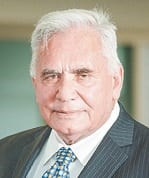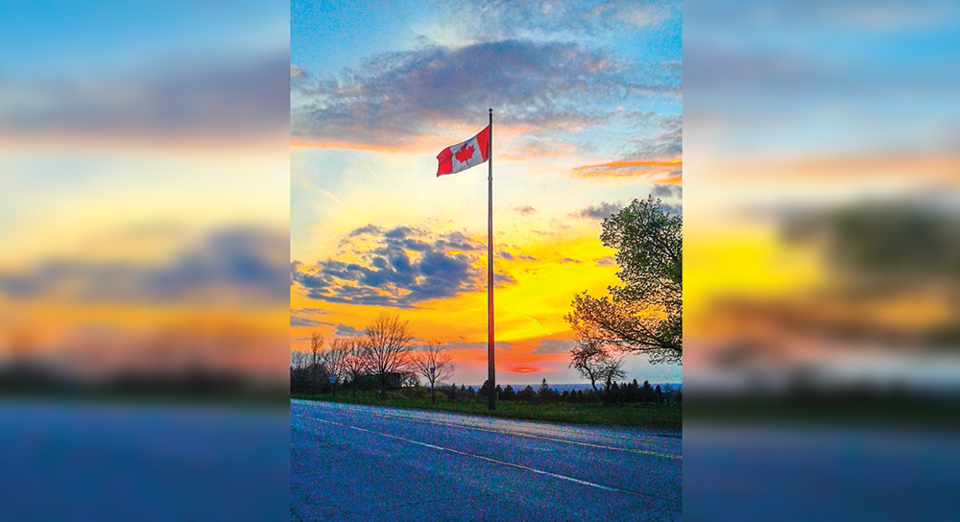Amid calls for Canada Day celebrations to be canceled this year in the wake of the discoveries of mass, unmarked graves at former Native residential schools, the Voice invited our elected officials and Pelham's CAO to share their thoughts about this year's holiday. Mayor Junkin's thoughts are in the opinion section. Councillors Huson and Wink declined citing time constraints. Councillors Haun, Hildebrandt, Kore, and Stewart did not acknowledge the newspaper's invitation.
As Canada Day approaches, there is a lot to reflect upon. As a nation we have recently experienced pandemic, tragedy, racism, economic loss, but also volunteerism, empathy, community building and hope. As a town, Pelham has persevered and really rallied when challenged by Covid-19. I think every Pelham resident should feel like their community is in a relatively good place, but I also think that we as a nation need to do some soul searching.

From a municipal perspective, how can one not be proud of a community in which the Legion, Branch 613, made and delivered over 14,000 meals? It’s truly hard to fully appreciate both the volume of work involved and the impact that must have had on the most vulnerable members of our community. If that doesn’t speak to communal spirit and care for one’s neighbours, then I have no idea what does.
In a similar vein, the Town has recently unveiled both benches and picnic tables that are painted in bright rainbow colours, intended to demonstrate support and acceptance towards members of the LGBTQ2S+ community. It’s actions such as these and others by Pelham institutions that should make us both proud residents and proud Canadians.
At the national level, I cannot help but think that this is the most challenging and significant year for the country in decades. Clearly all former residential schools need to be thoroughly investigated. When the extent of the evil (what other word can apply to mass graves hidden in school yards?) is understood, then Canada needs to help support First Nations to grieve and mourn for the loss of life at residential schools. As a society we need to acknowledge the harm done, and to honestly examine, confront and somehow remedy this harm if we are to move forward as a collective. We are privileged to live in a country that is amongst the best in the world, but love of country does not mean ignoring its failings — Canada clearly has some dark history that needs to be honestly examined and confronted.
Many communities across Canada have struggled with the decision on whether or not to forego Canada Day activities this year. From where I sit, this is one of those decisions where reasonable people can agree to disagree. On one hand, it is hard and potentially inappropriate to celebrate shortly after finding unmarked mass graves. On the other hand, most Canada Day celebrations, including those planned by Pelham, are aimed at children who have no understanding of the issue and have been suffering from pandemic isolation. For my part, Canada Day will be spent appreciating all of the good while reflecting on the bad, as I think befits this complicated time. ◆
Ward 1 Councillor Wayne Olson
At 10 AM, on the morning of January 2, 1967, a gleaming 13- car, purple and gray special train departed from Ottawa for Victoria. As the Upper Canada Railway Society noted in its Newsletter of January 1967, “The anticipation is over—Canada’s year-long 100th -birthday party is moving into high gear. And, fittingly, January 1st marked the most ambitious Centennial Project of them all—the $1.5 million Confederation Train.”

The Confederation Train was to travel from the west coast to the east coast and be open for exhibit for a total of 316 days. For those not able to visit the Confederation Train, there were eight truck caravans that began to crisscross Canada in the late spring. The train and caravans were greeted with excitement and anticipation especially in the smaller towns unused to such big productions.
Canada, in 1967, was still labouring under the shadows of the calamitous wars of the century. The economy was humming and serious reforms to pensions and health care had been made during the ‘60s. Looking back on it, there was a rather unattractive air of smugness and self congratulations over the Centennial celebrations.
As State Secretary Judy LaMarsh said in her remarks in Victoria on at the official opening of the Confederation Train, “The story this train has to tell is not one of perfection. Our past is not free of error and injustice—I am certain our future will not be either.” She called upon Canadians to “draw faith from the past to meet the challenges of the future.”
The aide-memoire created by the Centennial Commission describes in detail what Canadians were to see in each car. It was “a story of great development and a bright future.” In Car 1, the explorers were said to have “discovered that [Canada] had its own riches in furs and gold and the missionaries who followed saw a potential harvest in men’s souls.”
In the final car, “We also see images of the future suggesting that a greater story is about to begin. Who will make that story?” A more appropriate question would be who is not going to be a the table when the greater story is written.
I am shaken by the news from Kamloops and Saskatchewan. The Indigenous experience is of a community operating against all odds against a confining architecture of privilege. At this important historical moment, it is past the time to reckon with the legitimate demands for redress of historical oppressions. Just imagine how many events are intersecting in 2021.
Municipalities have the capacity to inform, shape, lead and create a climate of greater understanding. Human rights are not optional. We need to interpret our important obligations in a more expansive way. Every citizen has the right to equitable outcomes, to feel part of the community, to contribute to society and to have their contributions valued.
In the final analysis, leadership is action. We have to create intentional actions to make space at our table to allow for full contribution to the development and well-being of our community. We owe it to ourselves to listen with empathy. We can no longer step over issues. We must take a stand for all people. ◆
Niagara West MPP Sam Oosterhoff
In 2017, Canadians celebrated the 150th birthday of Canada with vigour and patriotism, acknowledging the many blessings that we possess in this great land, and gathering with neighbours and friends at festivities across Niagara West, and across the country.

Four year later, the celebrations have a very different tone. Although there are the beginnings of more in-person celebrations as Ontario moves through the stages of its roadmap to reopening, the large gatherings of years past have yet to return. Here in Pelham, the annual parade has been replaced with a drive-through parade, to encourage social distancing and prevent large crowds. Canadians and Ontarians have sacrificed a lot over the past 16 months as a result of Covid-19, and this Canada Day we will still be reminded of the over 26,000 Canadians who have lost their lives to the disease, as well as the contributions of frontline heroes across the nation.
Casting a somber shadow over the celebrations this year as well are the recent tragic discoveries of the remains of 215 Indigenous children at the residential school in Kamloops, and some 751 unmarked graves of indigenous peoples at the Marieval residential school in Saskatchewan. Undoubtedly, in the days to come, as more resources are put into examining the grounds of various schools, all Canadians will have to grapple with the reality of more terrible discoveries detailing the historic treatment and mistreatment of Indigenous peoples in Canada —a difficult legacy, and one that must be acknowledged.
Canada has a long and rich history, that goes back far beyond its official founding in 1867. From sea to sea to sea, Canadians are blessed to live in a peaceful country with amazing natural beauty, resources, a high standard of living, and freedoms and rights that are protected by law. We have much to be thankful for as Canadians, and it is right to celebrate and express gratitude for these gifts. However, as we have learned again, there are also serious stains on our collective history that deserve reflection and calls to action going forward. I will be praying two prayers this Canada Day. First, a prayer of thankfulness and joy at the opportunity we have been given to live in the country of Canada, with the many blessings we can continue to enjoy. Second, a prayer for healing, hope and reconciliation as our entire nation continues to grow and learn. May God truly keep our land “Glorious and Free!”
Happy Canada Day! ◆



